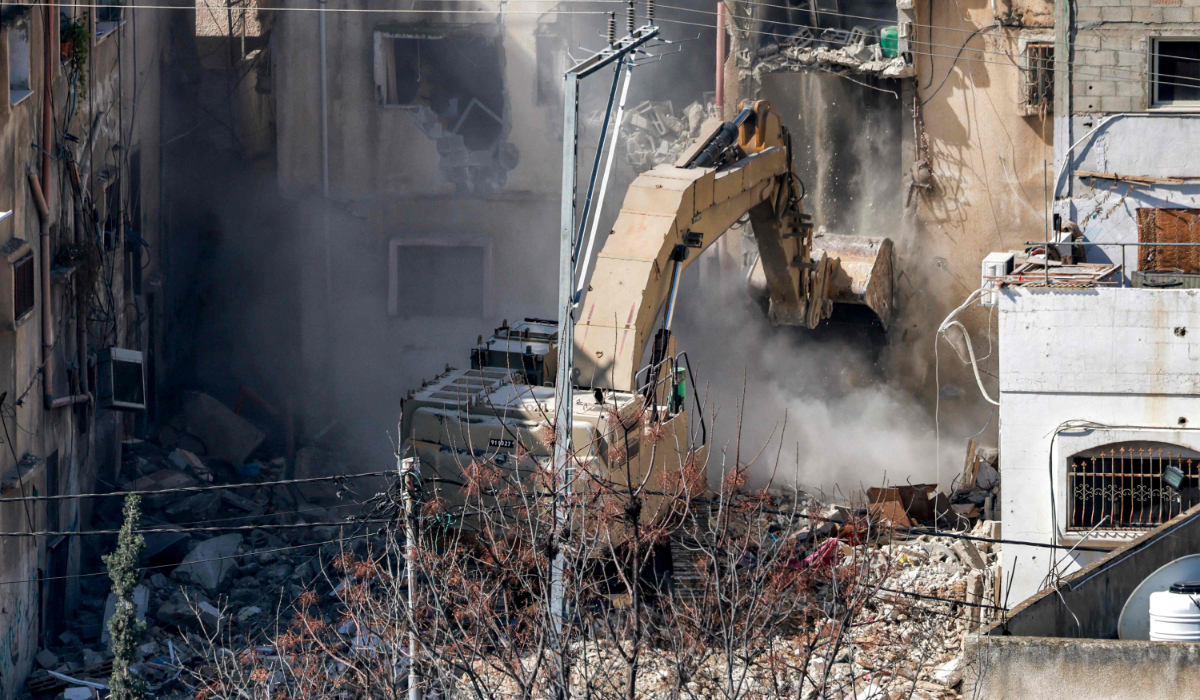CAIRO/JERUSALEM: An Israeli delegation arrived in Qatar on Sunday for more Gaza truce talks, Prime Minister Benjamin Netanyahu’s spokesperson said, as its military withdrew from an important crossing point in the enclave, as agreed under the truce with Hamas.
Indirect negotiations between Israel and the Palestinian militant group Hamas on the next stage of the ceasefire are set to start this week following Netanyahu’s visit to the United States last week.
However, a source in Netanyahu’s office said the Israeli delegation at this point will only discuss technical issues, rather than the bigger matters which are supposed to be hammered out, including the administration of post-war Gaza.
Last week, US President Donald Trump made a surprise call for Palestinians to be displaced from Gaza and for the enclave to come under the ownership of the US, which would rebuild it.
US officials have since walked back some of Trump’s remarks, saying Palestinians could return to Gaza once it was cleared of unexploded ordnance and rebuilt.
Still, Trump’s plan was widely panned with some critics saying it amounted to “ethnic cleansing.” Israeli officials have welcomed it.
Netanyahu’s security cabinet was scheduled to discuss Trump’s proposal, as well as the second stage of the ceasefire, on Tuesday, the source in his office said.
The first stage of the ceasefire which began on January 19 is meant to last six weeks and includes the release by Hamas of 33 Israeli hostages in return for Israel freeing almost 2,000 Palestinian detainees and prisoners from its jails.
Images of three hostages freed on Saturday, looking gaunt and weak, shocked Israelis. “Yesterday we got our father back. He lost much of his weight but not his spirit,” said Yulie Ben Ami, whose father Ohad was freed. “He survived hell.”
Withdrawal
Washington, Qatar and Egypt mediated the ceasefire, which has largely held. In keeping with the deal, on Sunday the Israeli military completed its withdrawal from its remaining positions in the Netzarim Corridor, which bisects Gaza.
Crowds of people were seen traversing the corridor as Hamas announced the Israeli withdrawal, while a long line of cars waited to pass through. An Israeli security source confirmed the military was leaving its positions there.
The Hamas-run police force deployed to the area to manage the flow Palestinians crossing through and Reuters footage showed what appeared to be Israeli military vehicles moving away from the coast and toward the Israeli border.
Hamas military and police forces have increased their public presence since January’s ceasefire, in what analysts say is an intentional message that the group has not been defeated.
Former American soldiers employed as private contractors have been deployed to inspect vehicles passing through the corridor in recent weeks following the ceasefire agreement that was implemented on January 19 after more than 15 months of war.
Israel had occupied the roughly 4 mile-long (6km) corridor south of Gaza City that stretches from the Israeli border to the Mediterranean Sea.
The corridor cut off Gaza’s northern communities, including its largest metropolitan area, from the south.
Thousands of Palestinians have streamed through the corridor in recent weeks, returning to their homes in the north from southern Gaza where they had sought shelter from the war.
Much of northern Gaza has become a wasteland following Israel’s devastating campaign. After finding their homes destroyed, some Gazans have gone back to the south, while others have set up tents where their homes once stood.
Israel vowed to destroy Hamas for its October 2023 attack in which 1,200 people were killed, most of them civilians, and 251 taken hostage, according to Israeli tallies.
More than 48,000 people have been killed in Israel’s retaliatory assault, according to Palestinian health authorities, most of them civilians.
Gazan medics said that on Sunday four Palestinians, including an elderly woman, had been killed by Israeli gunfire in two separate incidents near Khan Yunis and in Gaza City.
The Israeli military said soldiers had fired warning shots at “several suspects” and that “several hits were identified,” when asked about the Gaza City incident where medics said three Palestinians had been killed and five wounded. The military was not aware of the incident where the woman was allegedly killed.
Israeli delegation in Qatar for Gaza ceasefire talks
https://arab.news/r7fyb
Israeli delegation in Qatar for Gaza ceasefire talks

- Netanyahu’s security cabinet was scheduled to discuss Trump’s proposal, as well as the second stage of the ceasefire, on Tuesday, the source in his office said





























